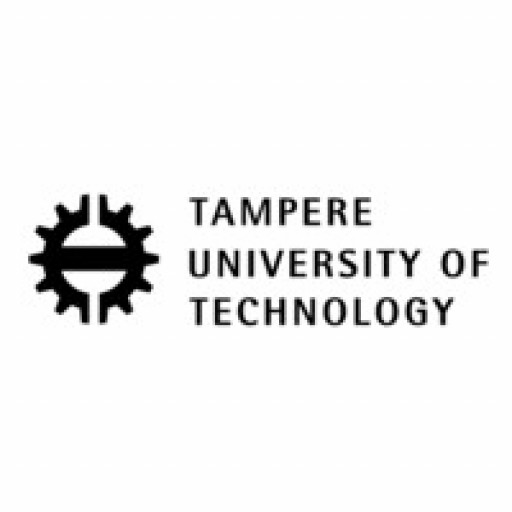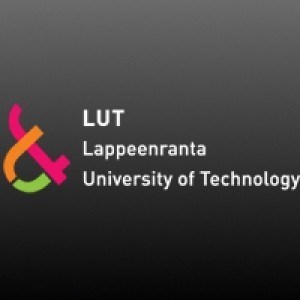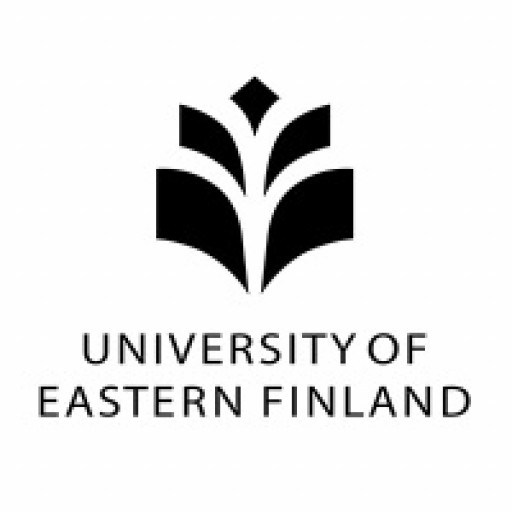The Master's Degree Programme in Communication Systems and Networks at Tampere University offers a comprehensive education in the design, analysis, and management of modern communication networks. This program prepares students to meet the increasing demands for reliable, efficient, and secure communication infrastructure in our interconnected world. Throughout the studies, students gain in-depth knowledge of the principles of data transmission, network architecture, and protocols, alongside proficiency in emerging technologies such as 5G, Internet of Things (IoT), and cloud-based communication services. The programme emphasizes both theoretical foundations and practical skills, incorporating hands-on laboratory work, real-world projects, and collaborations with industry partners. Students learn to analyze network performance, develop innovative communication solutions, and ensure cybersecurity within complex network environments. The curriculum covers topics including wireless communication, network security, distributed systems, and network management, equipping graduates with the expertise needed for careers in telecommunications, network engineering, and information technology sectors. The programme fosters a multidisciplinary approach, integrating knowledge from electrical engineering, computer science, and information technology to prepare students for rapidly evolving technological landscapes. Tampere University’s strong ties to industry and research institutions provide students with excellent internship opportunities and access to cutting-edge research. Graduates of the Communication Systems and Networks master's programme are well-positioned to work as network architects, security specialists, systems developers, or consultants in both the private and public sectors. They play a vital role in designing the future of global communication infrastructure, ensuring scalable, secure, and efficient data transmission across diverse applications and industries. The programme is suitable for students with a background in electrical engineering, computer science, or related fields, who are eager to deepen their understanding of communication technology and contribute to technological advancements in this vital area.
During your studies, you may specialise in either of the two focus areas: Networking or Radio Systems and Networks. Depending on your personal interests, you may also build your major whilst combining the two areas.
Networking covers various aspects of wired and wireless packet switched networks and the Future Internet. The compulsory courses focus on various aspects of local and wide area wireless and wired networks providing an in-depth knowledge of concepts like TCP/IP protocols suite, MAC-level algorithms and methods, networking paradigms (e.g., peer-to-peer networking). Optional courses cover various advanced subjects including network planning and dimensioning, traffic modelling, performance analysis and simulation of wireless networks. Current research topics include the development of concepts and technologies for the future evolution of cellular systems (beyond LTE), Internet of Things and nano-networking.
The Radio Systems and Networks develops skills for the theoretical understanding and practical optimization and planning of wireless radio communication systems and networks, like 3GPP HSPA, LTE, and LTE-Advanced, 5G New Radio, as well as IEEE 802.11 type WiFi systems, based on a deep understanding of radio communications, radio propagation and system-level RF issues. It introduces the fundamental aspect of optimising the radio access system performance through the modulation, detection and coding techniques and through the design of the radio network topology and radio resource management functions. In-depth understanding of waveform, modulation and coding related aspects is also developed during the studies.
Our courses have a strong emphasis on the underlying fundamental concepts, practical problem-solving and hands-on projects utilising modern simulation, design, and measurement tools also used by industry. Students will have a possibility to get hands-on experience in commercial mmWave systems using the available testbed.
Advanced studies and MSc thesis projects are closely linked to the research activities of the Wireless Communications research group in our department of Electronics and Communication Engineering at TUT, which has active collaboration with industry.
To become a MSc graduate you will need to complete the degree programme worth 120 ECTS. The modern study methods consist of lectures, exercises, assignments, independent studying and examinations. Courses are worth 90 ECTS and the remaining 30 ECTS are awarded for successfully completing a master's thesis. Each ECTS is equal to an average workload of 27 hours.
It is not possible to apply to a Master’s programme on the basis of a Master’s degree. The only exceptions are the one-tier degree programmes where the first cycle degree is not compulsory and the so-called long cycle degrees.
Applicants who are seeking admission to their first Master’s programme are given preference in the admissions process. Applicants for a second Master’s degree may be admitted only under special provision and only if they are able to show that the courses that count towards a degree at Tampere University of Technology provide the applicant with genuinely new knowledge and skills.
Applicants are required to demonstrate a high level of proficiency in the English language. TUT accepts internationally recognised academic language tests as demonstration of language proficiency. The accepted tests are IELTS Academic, TOEFL iBT, TOEFL PBT, PTE Academic and CAE/CPE.
To better further your success in the admission process generally the overall grade (CGPA) of the degree should reach at least 70 %. The CGPA (Cumulative Grade Point Average) is an average of all of your grades for the courses in your previous degree.
Students admitted to a Master’s degree programme may be required to complement their earlier degree with complementary studies. All students with a Finnish University of Applied Sciences (AMK) degree are required to complete a study package which generally includes courses in Mathematics, Physics and Chemistry depending on the student's background. For more information on the complementary studies, please contact the academic coordinator of the degree programme.
The student selection is made by an admissions committee on the basis of the academic qualifications and merits shown in the application documents. Please note that not all applicants fulfilling the requirements can be admitted.
English language tests
TUT accepts internationally recognised academic language tests as demonstration of language proficiency. The accepted tests are IELTS Academic, TOEFL iBT, TOEFL PBT, PTE Academic and CAE/CPE. Please note that the language test needs to be taken before the application deadline. We cannot accept language tests taken after the application deadline.
If you take the language test close to the application deadline and cannot submit the test results together with the other application documents, please contact the TUT Admissions Office (admissions@tut.fi) for further instructions.
If your language test score is expiring during the application period you should contact the TUT Admissions Office well before it expires.
IELTS Academic (score 6,0)
Tampere University of Technology verifies all IELTS test results from the test organiser. Upload a copy of the IELTS score slip on your application. It is very important that you indicate your IELTS test report number on the application form.
TOEFL (score: TOEFL iBT 79, TOEFL paper based test 550)
When registering for the TOEFL, enter the code of Tampere University of Technology 0599 into the Score Report Recipient field. TUT verifies all TOEFL test results online from the test organiser. Indicate your test score and test date on the application form.
If you have already taken the TOEFL test you will need to request the test organiser to make the test score available to TUT online.
PTE Academic (score 53)
Your online PTE Academic account allows you to send a secure copy of your test scores to Tampere University of Technology online. TUT will then be able to access and verify your test result online. Indicate your test score and test date on the application form.
Cambridge Language Certificate (Proficiency CPE or Advanced CAE)
Upload your test results on your application. Your results will be verified from the test organiser. Include your Candidate's ID and secret code.
Tuition fees for english-taught degree programmes:
- 10 000 € per academic year for the Bachelor’s programme
- 12 000 € per academic year for all Master’s level programmes
For students who are citizens of countries within the European Union (EU), the European Economic Area (EEA) or Switzerland, studies in all degree programmes will remain free of charge. Tuition fees will also not affect those non-EU/EEA students who have the right to permanent residence in Finland (residence permits A, P and P-EU).
TUT offers a generous scholarship programme for fee-paying students. With the help of the TUT scholarship, TUT continues to provide excellent international students with high-quality, yet affordable, education. The TUT scholarship programme consists of the TUT academic excellence scholarship and tuition fee waivers.
TUT academic excellence scholarship
In 2018, TUT is awarding the TUT academic excellence scholarship to up to ten of the most talented applicants. The TUT academic excellence scholarships include a full tuition fee waiver as well as an allowance of 7000 € per academic year to cover living costs. The scholarships are awarded for an academic year and considered on an annual basis.
Tuition fee waivers
The majority of TUT scholarships are awarded as tuition fee waivers to the most talented students. The fee waivers awarded may cover either 50 % or 100 % of the full tuition fee. Tuition fee waivers are awarded during the admissions process or can be earned during the studies. The tuition fee waivers awarded in conjunction with the student admission process are full tuition fee waivers which cover 100 % of the tuition fee. The tuition fee waiver is awarded to a sizeable proportion of the admitted students.
Communication Systems and Networks graduates are typically employed by mobile communication network operators, R&D houses, wireless device and network vendors, consulting companies, and research institutes. The global mobile communications industry is a massive employer with close to 900 billion USD yearly volume, and, thus, there are great national and international career prospects. Furthermore, the communications infrastructure is the basis for the on-going digitalisation process in several industries. Thus, as a communications engineering expert, you will also have great career prospects in, for example, the energy, transportation and automotive industries, as well as in different production and manufacturing fields outside the traditional ICT field.







